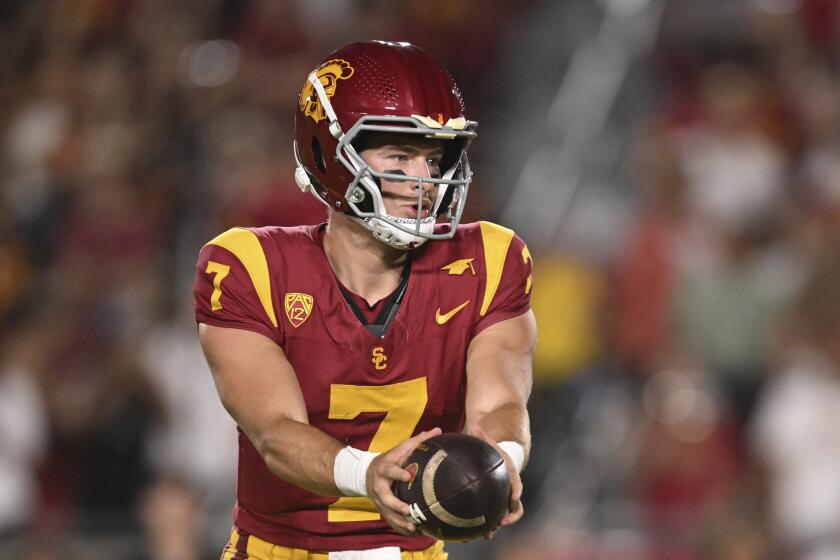Senator cites BCS ‘inequities’
When Utah went undefeated in its 2008-09 football season but was not chosen to play in the national championship game, the slight was not unnoticed by the state’s senior senator.
The Bowl Championship Series has drawn loud criticism lately from lawmakers, fans, coaches and even President Obama, who said after his election that he would use his influence as chief executive to push for a playoff system.
But what’s less clear is whether the BCS violates antitrust laws, and what role, if any, Congress could play in crafting legislation to alter the 11-year-old system.
These questions were considered Tuesday at a Senate hearing, called at the request of Sen. Orrin Hatch (R-Utah), the ranking member of the Judiciary Committee’s antitrust subcommittee. Hatch questioned the “structural inequities” that allow what he called the six “preferred conferences” to receive nearly 90% of BCS revenue, and to deny teams such as Utah a fairer shot at the national title.
Hatch told reporters after the hearing that the Justice Department should investigate whether the BCS violates antitrust laws, the Associated Press reported. The Sherman Antitrust Act prohibits “contracts, combinations or conspiracies to limit competition” he said earlier, adding that he doesn’t believe a plainer description of the BCS exists.
Utah, bypassed for the BCS title game in favor of Florida and Oklahoma, played in the Sugar Bowl, beating Alabama, 31-17.
Currently, college football does not determine its winner through a playoff tournament, as basketball does, instead relying on a combination of two polls and six computer rankings to determine bowl berths.
The current arrangement also guarantees automatic berths to the champions of six conferences; the other five conferences -- including Utah’s Mountain West Conference -- receive no such guarantee.
But defenders of the current system say its purpose was to give top-ranked teams a chance to play each other, regardless of conference agreements, while preserving the long-standing bowl system that includes the Rose Bowl, Sugar Bowl, Orange Bowl, Fiesta Bowl and the BCS national championship game.
A tournament system, defenders also argue, would disrupt the excitement of the regular season. They deny any antitrust violation, noting that revenue is distributed based on teams’ contribution to the BCS, and that every four years, conferences are given the opportunity to become automatic-qualifying members, provided the conference meets certain criteria.
During the hearing, however, Barry Brett, a lawyer for the Mountain West Conference, called the BCS “a self-designated cartel controlled by six conferences.”
And Michael Young, president of the University of Utah, called the BCS a “system designed to channel money to certain universities.” He noted that the Mountain West received $9.8 million from the BCS in 2008 -- compared to the $18.6 million received by three automatic-qualifying conferences with lower rankings.
“Championships should be decided by competition, not by conspiracy,” Young said.
Hatch, the sole questioner at the hearing, asked Harvey Perlman, chancellor of the University of Nebraska and the new chairman of the BCS Presidential Oversight Committee, about last season.
“What more could Utah have done to play their way into a national championship game?” Hatch asked.
Said Perlman: “If they’d beaten Alabama before that bowl game, instead of at that bowl game, they might have had a better shot at it.”
Tuesday marked Congress’ second look at the BCS this session, and the fourth hearings since the BCS’ inception.
--
More to Read
Get our high school sports newsletter
Prep Rally is devoted to the SoCal high school sports experience, bringing you scores, stories and a behind-the-scenes look at what makes prep sports so popular.
You may occasionally receive promotional content from the Los Angeles Times.






